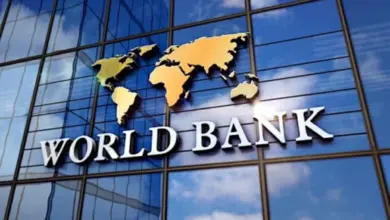Egypt’s calcified politics has long been judged an asset in a turbulent region but as President Hosni Mubarak ages in office with no clear successor investors are wondering if it might be a liability.
Egypt’s economy is still buoyant despite uncertainty about whether the 81-year-old president will seek a sixth term in 2011 or lever his son into power, or whether a dark-horse military officer or other candidate will emerge.
But bankers, rating analysts and brokers are asking more questions about who will rule after Mubarak, concerns that may bring demands for higher returns from Egyptian investments compared to rival markets and can confine Egypt debt ratings.
Worries about Mubarak’s health, in power since 1981 and who has not picked a vice president, have in the past rattled Egypt’s markets. So when he had surgery this month, it seemed carefully planned to fall on a weekend to give little chance for the usual rumours to start.
"The stable political outlook has obviously long been something that has been identified as an advantage for Egypt," Control Risks analyst Wolfram Lacher said.
"Now, as the presidential succession is approaching, there has been obviously more uncertainty, and this uncertain political outlook has turned into somewhat of a disadvantage."
Headline figures do not reflect investor caution. Egypt’s bourse is among the region’s best performers, the economy has grown at nearly 5 percent through the global downturn and, while foreign investment dipped in the crisis, it still flows in.
But there are signs of concern. An Egyptian banker, when asked what IPO deal flow would look like in 2011, would not comment until pushed to say, in private, that it was too difficult to predict with a presidential election looming.
Asked about dealings with foreign clients, an economist at another bank said: "They are not holding back in terms of investment, but they do recognize there is a degree of uncertainty that has become more elevated now than before."
A Cairo-based brokerage analyst, who like others wanted to remain anonymous because of the political sensitivities, said political risk pushed foreign investors to demand higher returns from Egypt than in rival emerging markets, like some in Asia.
Officials dismiss concerns. Prime Minister Ahmed Nazif said about the succession in a Reuters interview in October: "I’m telling investors, don’t worry. There is always a way and there is always an alternative. There has been in Egypt in the past."
If the president dies in office or is incapacitated, powers will pass temporarily to the speaker of parliament, and an election must be held within 60 days. The first multi-candidate race was held in 2005, and Mubarak won easily.
But rules make it almost impossible for anyone not backed by Mubarak’s ruling party to mount a real presidential challenge. Under those terms, the decision-making on the next president is likely to happen in backroom dealings not at the ballot box.
"It is frustrating for outside observers because they have very little to rely on. When you don’t understand something you tend to think it is unstable or unpredictable," said one Egyptian political analyst, who also declined to be named, although he said concerns about instability might be overplayed.
Richard Fox, head of the Middle East and Africa sovereign team at Fitch Ratings, said the presidential succession still confined debt ratings because it could slow economic liberalization policies lauded by foreigners since 2004.
"If we had a transition and we could see what the next government would look like, then obviously it’s much easier to form judgments," said Fox, adding without clarity the succession issue "certainly constrains on the ratings going up."
Many Egyptians believe Mubarak wants to hand power to his son, Gamal, 46, who has risen to a senior position in the ruling National Democratic Party and whose allies dominate key economic portfolios in the cabinet. Father and son deny this.
"I think the business community would like Gamal Mubarak to succeed his father," said Khaled Abdel Majeed, managing partner of MENA Capital, a London-based investment management firm.
"There are millions of poor Egyptians out there who may have a different view, because the gap between the haves and have-nots has widened," he said, referring to complaints that the benefits of economic liberalization have not trickled down.
But Gamal Mubarak’s succession is no foregone conclusion. Unlike all Egypt’s presidents, he has no military background which may make it tougher to establish his authority.
Omar Suleiman, intelligence chief and confidant of the president, has been cited as a possible contender and a military candidate could emerge from under the radar, analysts say.
Mohamed ElBaradei, one of Egypt’s best-known figures abroad after he led the International Atomic Energy Agency till last year, has stirred up debate by saying he might run and drawing tens of thousands of supporters on Facebook and other sites.
But he has said he will not run without securing a set of conditions, such as changing the constitution, that are unlikely to be achieved.




